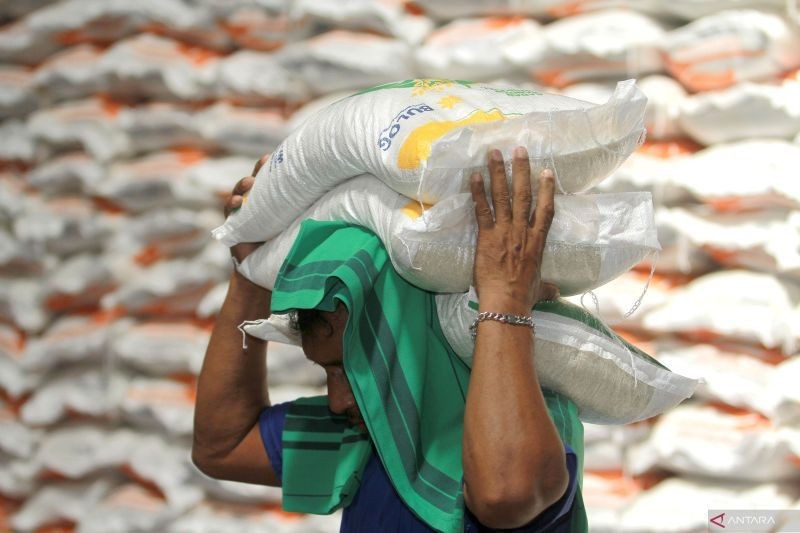Popular Reads
Top Results
Can't find what you're looking for?
View all search resultsPopular Reads
Top Results
Can't find what you're looking for?
View all search resultsAnalysis: Bulog under military leadership sparks concern over dual function
Change text size
Gift Premium Articles
to Anyone
S
tate-Owned Enterprises (SOE) Minister Erick Thohir has appointed Major General Novi Helmy Prasetya as the new president director of the State Logistics Agency (Bulog), sparking concerns about military involvement in civilian institutions. Given Bulog’s critical role in national food security, the decision raises questions about whether military leadership is equipped to handle the agency’s complex economic and logistical challenges.
Since taking office in 2019, Minister Erick Thohir has frequently reshuffled Bulog’s leadership, regularly appointing new president directors. The latest leadership change, formalized under SK-29/MBU/02/2025 on Feb. 7, reflects a broader trend of appointing military and law enforcement figures to key positions in SOEs. Major General Novi replaces Wahyu Suparyono, while Hendra Susanto has been appointed as finance director, replacing Iryanto Hutagaol. Additionally, retired National Police officer Verdianto Iskandar Bittacaca—formerly the Chief of Police’s Operations Principal Assistant—has been appointed to the Supervisory Board, replacing Wicipto Setiadi.
The government justifies the appointment of military personnel to Bulog by emphasizing the need for efficiency in achieving food self-sufficiency—one of President Prabowo Subianto’s flagship programs. President Prabowo has pledged to make Indonesia self-sufficient in rice, corn, sugar, and salt within five years. Supporting this goal, Agriculture Vice Minister Sudaryono has confirmed that the government will halt imports of these staple commodities starting this year.
However, the appointment of active-duty military officers to civilian posts raises legal and governance concerns. Legal experts point to a clear violation of Law No. 34/2004, Article 47, Paragraph 1, which explicitly states that active military personnel must resign or retire before assuming civilian roles. This apparent disregard for legal frameworks has raised alarms about increasing militarization within the civilian government, potentially undermining democratic principles and good governance.
The new leadership structure has drawn criticism, with some observers warning that it could signal a revival of the military’s dual function (dwifungsi), a hallmark of past authoritarian eras. Bulog’s transition also comes at a crucial moment, as the agency has been granted greater institutional autonomy under President Prabowo’s administration. This shift restores Bulog’s authority to levels reminiscent of the New Order era, when the agency served as both regulator and operator—an arrangement that previously led to conflicts of interest, corruption, and nepotism. Critics argue that reinstating this model could benefit politically connected businesses while undermining market competition and transparency.
With these structural changes in place, Bulog’s ability to meet its procurement targets will serve as a critical test of its effectiveness under military leadership. Agriculture Minister Amran Sulaiman has set a target of procuring 3 million tons of rice from this year’s main harvest. Of this total, Bulog is tasked with securing 2.1 million tons from the Rice and Grain Milling Entrepreneurs Association (Perpadi) and the remaining 900,000 tons directly from farmers. To support these efforts, the government has allocated an additional Rp 16.6 trillion (US$1 billion) for Bulog to purchase unhusked rice (Gabah Kering Panen or GKP) at the government-set price (HPP) of Rp 6,500 per kilogram.
As of February 11, the National Food Agency (Bapanas) reported that Bulog holds 1.9 million tons of rice in stock, including 124,361 tons of commercial stock and 1,784,753 tons in government reserves. Bapanas has projected that Bulog’s stock could reach 5 million tons in 2025, reinforcing its role in stabilizing national food supplies. Whether this expanded mandate will strengthen food security or exacerbate concerns about governance and accountability remains to be seen.



















